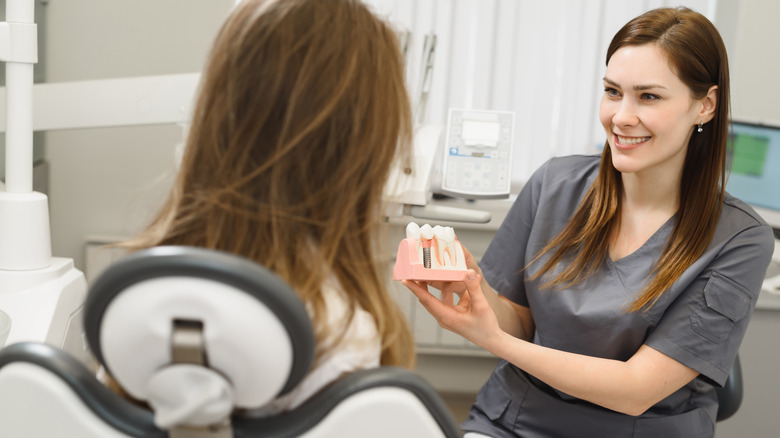The First Thing You Should Do After Having Your Wisdom Teeth Removed
Many teenagers and young adults go through the process of having their wisdom teeth removed. This procedure is often recommended by a dentist to prevent overcrowding in your mouth by these molars, but it can also be beneficial if your wisdom teeth are growing at an odd angle or the teeth are impacted (via WebMD). If you do not get your wisdom teeth removed when you are younger, you may experience more serious and more painful dental problems when you get older.
Getting your wisdom teeth removed is a serious procedure. Many people are given anesthesia and put to sleep during the operation, although it can also be performed when someone is awake. Proper aftercare is crucial to a successful recovery. According to Now Care Dental, it is important that you spend plenty of time resting after your procedure. Limit activities that will get your blood pumping. This can cause your wounds to bleed more and increase your pain level. You should also avoid touching the affected area as much as possible. Your dentist will likely ask you to remove the gauze in your mouth about 30 minutes after surgery.
Following your oral surgeon's instructions will make recovery easier
Like with any surgery, it is important to follow the aftercare instructions given to you by your oral surgeon. Including the items listed above, you should avoid rinsing your mouth vigorously. This may cause the blood clot on your gums to get dislodged, which may cause heavy bleeding (via Associates for Oral Surgery). Your oral surgeon will send you home with pain medication, which you should take as soon as the local anesthetic from the procedure begins to wear off. It is important to stay on top of your pain medication to avoid discomfort during your recovery. Ice packs placed on the sides of your face can also help with pain and swelling.
Your diet is also very important after wisdom teeth removal. Only consume liquids for the first few hours after surgery. As soon as your doctor directs, it is okay to consume soft foods as long as you chew with the front of your teeth. If food gets into your surgical wounds, it can get trapped and cause an infection. You should also avoid drinking through a straw, as the sucking motion can loosen the blood clots in your mouth.


